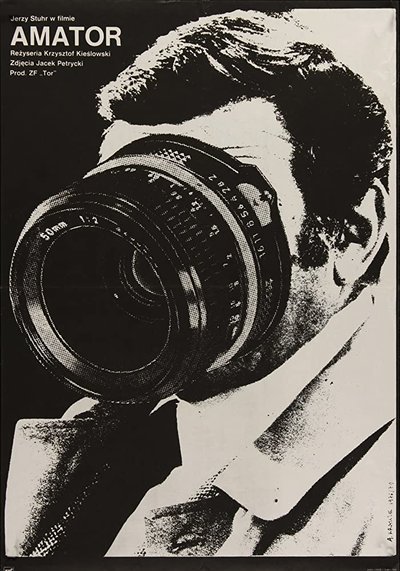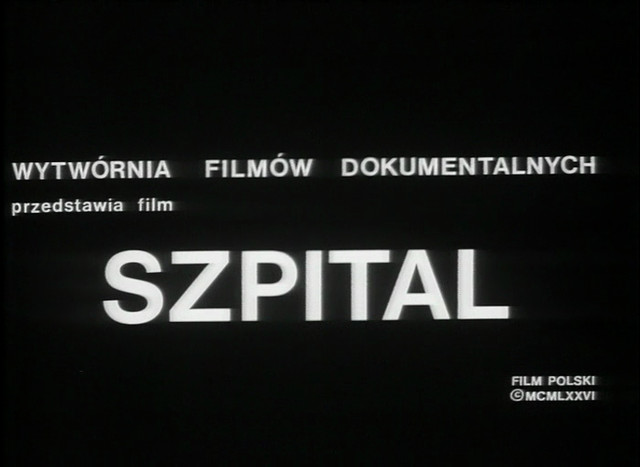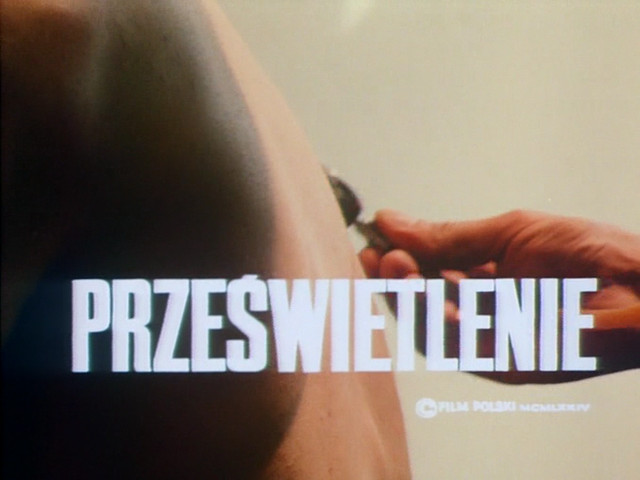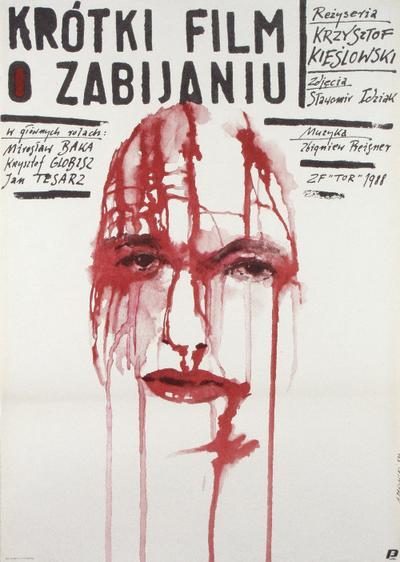Quote:
It all starts when Filip Mosz (Jerzy Stuhr) buys a little 8mm movie camera to film his new-born baby. Like a true enthusiast, Filip enters into the spirit of his new hobby, filming everything that moves and working on the material on a small editing suite. When he is commissioned by his boss to film a reception being held to commemorate the company’s 25th anniversary, he becomes aware of the pressures of outside expectations and even censorship. The film however gets entered into an amateur film festival and wins third prize (second prize really since none were judged good enough to win first prize!) and he soon finds himself caught up in the world of TV and film-making, helped by an attractive film producer.Read More »
Krzysztof Kieslowski
-
Krzysztof Kieslowski – Amator AKA Camera Buff (1979)
1971-1980DramaKrzysztof KieslowskiPoland -
Krzysztof Kieslowski – La double vie de Véronique AKA The Double Life of Veronique (1991)
1991-2000ArthouseDramaFranceKrzysztof Kieslowski
Synopsis:
Two parallel stories about two identical women; one living in Poland, the other in France. They don’t know each other, but their lives are nevertheless profoundly connected.
Review:
It is important to resist the temptation to figure out every last detail of “The Double Life of Veronique,” the mysterious and poetic new film by Krzysztof Kieslowski. That way lies frustration.Read More »
-
Krzysztof Kieslowski – Szpital AKA Hospital (1976)
1971-1980DocumentaryKrzysztof KieslowskiPolandShort FilmQuote:
A film made in the emergency room of the traumatic surgery hospital located on Barska Street in Warsaw. Doctors attempt to help the injured in the face of frequent power shortages typical of the Polish People’s Republic. @culture.pl
Read More » -
Krzysztof Kieslowski – Przeswietlenie AKA X-Ray (1974)
1971-1980DocumentaryKrzysztof KieslowskiPolandShort FilmQuote:
Made at the sanatorium of Sokolowsko in Lower Silesia, this film looks at individuals suffering from pulmonary disease and is a moving portrait of those living with illness. @culture.plQuote:
In this short film, Kieslowski tries to penetrate the world of people affected by lung disease. In style, this picture closely resembles a documentary completed four years earlier titled I Was a Soldier which gives voice to veterans who had lost their sight to war, whereas in this picture, it’s the lung disease patients whose stories we hear. The entire movie is composed of their tales. The only binding element of the story is the buckle of the movie’s landscape which places the story at a physical location, indicating its threshold – going home after their stay at the sanatorium. The statements are made directly into the camera; the director uses close up on their faces. He listens.Read More » -
Krzysztof Kieslowski – Klaps AKA Slate (1976)
1971-1980DocumentaryKrzysztof KieslowskiPolandShort FilmQuote:
A short impression composed of outtakes from Krzysztof Kieślowski’s feature film titled The Scar / Blizna (1976). @culture.plQuote:
Slate (1976, color, 6 min.): While some of these outtakes (from The Scar) are “bloopers”, other do not appear so. The film becomes something of an editing experiment, unified by the musical rhythm of the clapping slate.
– Joseph G. Kickasola, The Films of Krzysztof Kieslowski, 2006Read More » -
Krzysztof Kieslowski – Gadajace glowy AKA Talking Heads (1980)
1971-1980DocumentaryKrzysztof KieslowskiPolandShort FilmIn Talking Heads, Kieślowski interviews 40 different people ranging from a one-year-old to a one-hundred-year-old simply asking them three questions: “What year were you born?”, “Who are you?” and “What would you like?”
Read More » -
Krzysztof Kieslowski – Przypadek AKA Blind Chance [+Extras] (1987)
Drama1981-1990Krzysztof KieslowskiPolandQuote:
Krzysztof Kieslowski’s Blind Chance is a powerful political fable that provides an early glimpse at the unique style that would later lead to acclaimed international successes like the Three Colors Trilogy and The Double Life of Veronique. As with the later films, Kieslowski displays a deeply erotic, sensual sensibility and a warm humanism that inflects every facet of this complex film. He also shows signs of the spiritual outlook and interest in fate and overlapping chronologies that is especially prevalent in the films he’s best known for. Blind Chance begins with a brief, elliptical precis of the early life of Witek (Boguslaw Linda), starting with a few childhood scenes, his first love, his days in medical school, and finally the death of his father. Many of these earlier memories will later be shown to be false or at least incomplete, hazily remembered scenes from the distant past that have taken on iconic status in Witek’s mind even if the particulars aren’t quite accurate.Read More » -
Krzysztof Kieslowski – Krótki film o zabijaniu AKA A Short Film About Killing (1988)
1981-1990CrimeDramaKrzysztof KieslowskiPolandQuote:
Death from the very beginning — a rat decomposing in the water, a cat hanging from a railing as giggling children run off. In Krzysztof Kieslowski’s expansion of the Decalogue: Five segment (“Thou shalt not kill”), the commandment bounds individual and governmental killing into one object of anguished contemplation. Biblical intimations also figure in the bar exam summation (“Since Cain, no punishment has been capable of improving the world”) of apprentice attorney Krzysztof Globisz, one of the three Warsaw dwellers whose path ominously converge; the others are a 20-year-old drifter (Miroslaw Baka) and a jaundiced, middle-aged cabbie (Jan Tesarz). The obscured-vision effects of Slawomir Idziak’s dirty-sepia filters — characters encircled by soiling irises — suggest isolated realities clashing appallingly in the most excruciating murder since Torn Curtain’s farmhouse killing: a mid-ride throttling, Tesarz’s writhing foot emerging bare from shoe and sock, a heavy body dragged through an almost Tarkovskyan marsh before the final bludgeoning at Bakas hand’s.Read More » -
Krzysztof Kieslowski – Krótki film o milosci AKA A Short Film About Love (1988)
1981-1990DramaKrzysztof KieslowskiPolandRomanceQuote:
An obscured thief breaks into a school gymnasium at night to steal a portable telescope from the science lab. On the following morning, the thief, Tomek (Olaf Lubaszenko) sets up the telescope on his desk, facing the window of his room, and across the courtyard into an adjacent apartment. Later in the day, an attractive, hurried woman named Magda (Grazyna Szapolowska) stops by the post office in order to claim a money order after receiving a notification in her mailbox, only to be informed by the attentive young postal clerk, Tomek, that there is nothing being held at the station on her behalf. Back home, Tomek sets his alarm clock to 8:00 pm, the approximate time of Magda’s return home. Tomek would prepare his meals and dine in the privacy of his room, away from the curious gaze of his godmother (Stefania Iwinska), and spend hours observing Magda as she goes through the routine of her household tasks, often placing anonymous, silent telephone calls to hear the sound of her voice.Read More »








